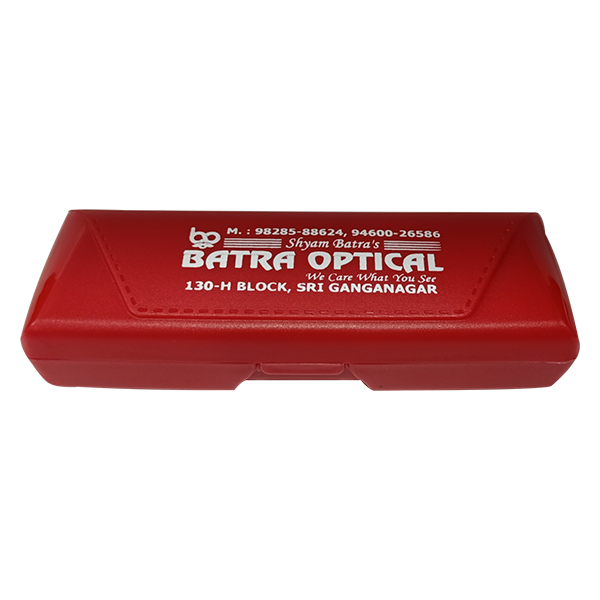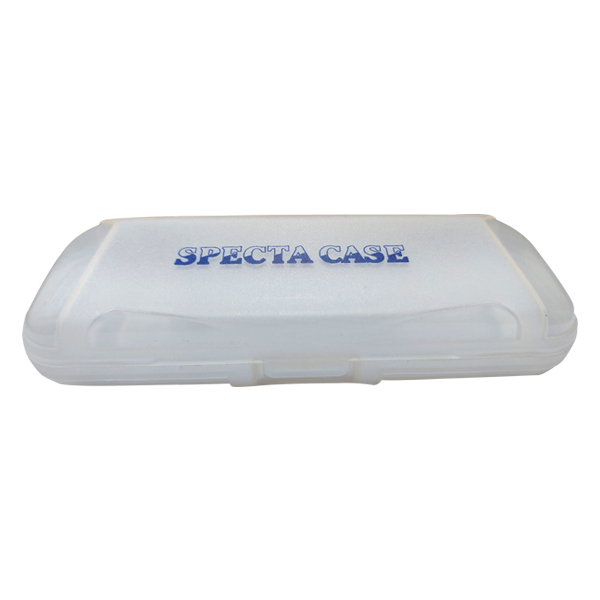The environmental impact of single-use plastics is an increasing concern in today’s world. Items like straws, bags, and water bottles are used for a short time but can remain in the environment for centuries. With its traditional reliance on plastic materials, the spectacle case industry is well-positioned to drive the transition toward more sustainable solutions.
Single-use plastics are a major source of pollution, particularly in our oceans, where millions of tons of plastic waste accumulate each year, threatening marine life and disrupting ecosystems. The production and disposal of these plastics also generate significant greenhouse gas emissions, further intensifying climate change. As awareness of these environmental challenges increases, both consumers and businesses are actively seeking alternatives to minimize their ecological impact.
The spectacle case industry has the potential to lead the shift toward sustainability. By embracing eco-friendly materials and innovative designs, manufacturers can significantly reduce their dependence on single-use plastics. One effective strategy is incorporating recycled plastics into production, which helps divert waste from landfills while cutting the need for virgin plastics, conserving both resources and energy. High-quality recycled plastics offer comparable performance and aesthetics to new materials, ensuring consumers receive durable and visually appealing products without compromising on sustainability.

Single Uses of Plastic Cases



Another promising approach is the use of biodegradable materials, which break down more quickly and safely in the environment than traditional plastics. Although still in the early stages of development, biodegradable plastics and bio-based polymers present an exciting opportunity for the future. These materials could enable spectacle cases to decompose naturally, leaving behind no harmful residues and reducing long-term environmental impact.
Manufacturers can also focus on design innovations that extend the lifespan of spectacle cases. For example, developing modular or customizable designs can encourage consumers to use and keep their cases longer. Additionally, take-back programs that allow customers to return old cases for recycling or repurposing can help create a closed-loop system, ensuring materials are reused rather than discarded as waste.
Education and collaboration are essential to driving this transformation. Manufacturers must work hand-in-hand with suppliers, retailers, and consumers to promote sustainable practices and raise awareness of the environmental impact of single-use plastics. By providing clear and transparent information about the benefits and limitations of different materials, they can build trust and inspire more eco-conscious decisions.
By taking the lead in sustainability, the spectacle case industry can set a powerful example for other sectors. Embracing eco-friendly materials and practices not only benefits the environment but also aligns with the increasing consumer demand for responsible products. As we confront the ongoing challenges of plastic pollution and climate change, our industry’s commitment to sustainability becomes more essential than ever.
The journey toward a more sustainable future is challenging, but the potential benefits for our planet and future generations make it a worthy endeavor. By embracing innovation, fostering collaboration, and maintaining a strong commitment to minimizing environmental impact, the spectacle case industry has the opportunity to lead the way in driving meaningful change.
At Specta Case, we are committed to environmental responsibility and sustainable development. We integrate eco-friendly practices into our operations, including a robust disposal policy and recycling processes. Each year, we recycle approximately 1,000 tons of roadside plastic waste to create raw materials for our products. Our dedication to reducing environmental impact and promoting sustainability is embedded in our team’s daily efforts, reflecting our role as a responsible corporate citizen.
